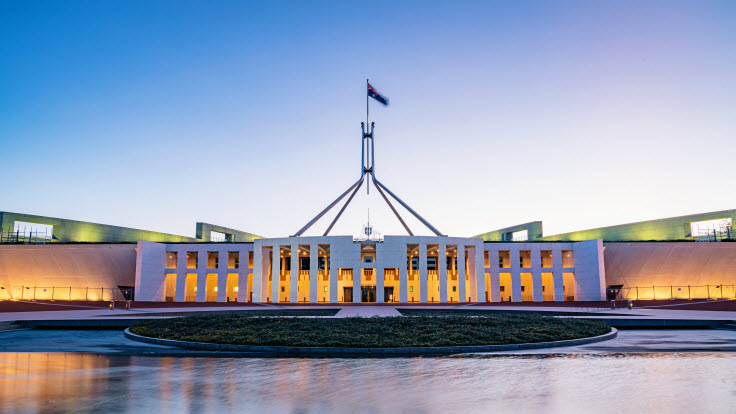
On Tuesday evening, Federal Treasurer Josh Frydenberg handed down the 2021-22 Federal Budget, which revealed that Australia’s economy is forecast to grow by 4.25 per cent in 2021-22.
REIA’s perspective
The Real Estate Institute of Australia (REIA) said the 2021 Federal Budget confirmed a positive outlook for buyers, sellers, investors, tenants and small business.
REIA President, Adrian Kelly said that measures for people, property and small business including expansion of the First Home Super Saver and the First Home Loan Deposit were welcomed.
“REIA welcomes the budget which is aimed at helping women and first home buyers and continues to provide taxation benefits for the small business sector.”
“Employment growth and jobs creation enabled by personal income and business tax deductions, infrastructure spending and investment in childcare paint an optimistic future with unemployment falling to five per cent in 2021-2022 and under five per cent by 2022-23.”
“As part of this, the extension of full expensing and loss carry back provisions is welcome by agencies for small business as is the expansion of the Boosting Apprenticeships Program which many agencies have utilised,” he said.
Mr Kelly said while the budget contains measures to assist first home buyers, REIA had hoped that interest rates for first home buyers would be tax deductible and that the deregulation agenda would be clearer.
“We will continue to advocate for first home buyers to have the ability to claim interest payments as a tax deduction which will be crucial in years to come when interest rates start to rise,” he said.
For more information, read the full REIA media release.
The 2021-22 budget breakdown
While the 2021-22 budget contained a range of positive measures for first home buyers and single parent families, REIWA believes more could have been done to assist the real estate sector more broadly.
Standing out above all else, the major spending required to address housing affordability and supply in WA was nowhere to be found.
The focus of the Federal Government appears to be assisting vulnerable buyers by giving them greater access to the market. While REIWA supports these measures, more needs to be done to address the state’s housing shortage.
Housing infrastructure spending
Housing supply in WA remains low and investor activity is stagnant. Many experts believe the Federal Government has an important role to play, particularly in the public and affordable housing space.
Disappointingly, the Federal Government has earmarked only $124 million across the states and territories to either boost public housing stock or fund homelessness services.
While REIWA supports any spending at all on social housing, much more is needed to address the affordable housing shortages in our state.
First home buyers
REIWA was pleased to see the extension of successful schemes assisting first home buyers, and supports any scheme that will reduce the barriers faced by first home buyers entering the market:
- The First Home Super Saver scheme, which allows first home buyers to both contribute to their super, and withdraw from it to fund a deposit, has been extended and the cap lifted from $30,000 to $50,000.
- The New Home Guarantee scheme, which allows first home buyers to build or buy a new home with just a five per cent deposit, will be extended to add another 10,000 places for singles and couples.
Single parents
REIWA was also pleased to see the introduction of a new scheme for single parents, addressing a critical need in assisting single parents to enter the housing market:
- Under the Family Home Guarantee scheme, a single parent will be able to purchase a dwelling with a two per cent deposit, with the Federal Government guaranteeing another 18 per cent of the value of the loan.
With only 10,000 places allocated for this scheme over four years, spots will be limited, and REIWA expects it will become increasingly popular as more single parents become aware of the scheme.
Taxation
Tax policies directly impact the level of investment in housing which in turn influences housing affordability.
Regrettably, none of the tax measures in this budget will have enough of an impact to see positive outcomes.
REIWA was happy to see an extension for another year of the Lower-Middle Income Tax Offset, which has been a popular tax break for people earning up to $125,000 per annum.
REIWA would have liked to have seen the Stage 3 Personal Income Tax cuts bought forward, to have more money in the pockets of the everyday Australian.
Superannuation
The Federal Government has announced an extension to the Downsizer Scheme, which allows downsizers to turbocharge their super (up to $300,000) when they sell their family home.
Before, only those aged 65 and over were able to access the scheme. Now, anyone aged 60 and over can access the scheme, and the work test is no longer required (meaning you don’t need to prove you worked before accessing the concessions).
REIWA welcomes the changes made in the superannuation space. The Institute has consistently called for greater access to existing family homes as critical for young families seeking to upsize.
REIWA also maintains that meaningful changes to stamp duty would see even more movement in this space and will continue to advocate to State and Federal Governments to reform or abolish stamp duty.
Sourced from reiwa.com.au




